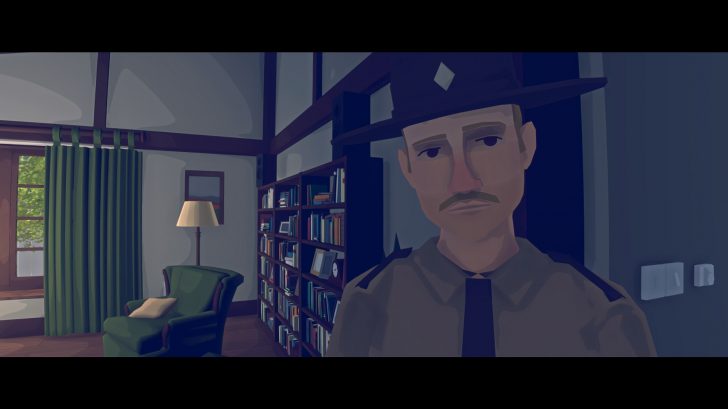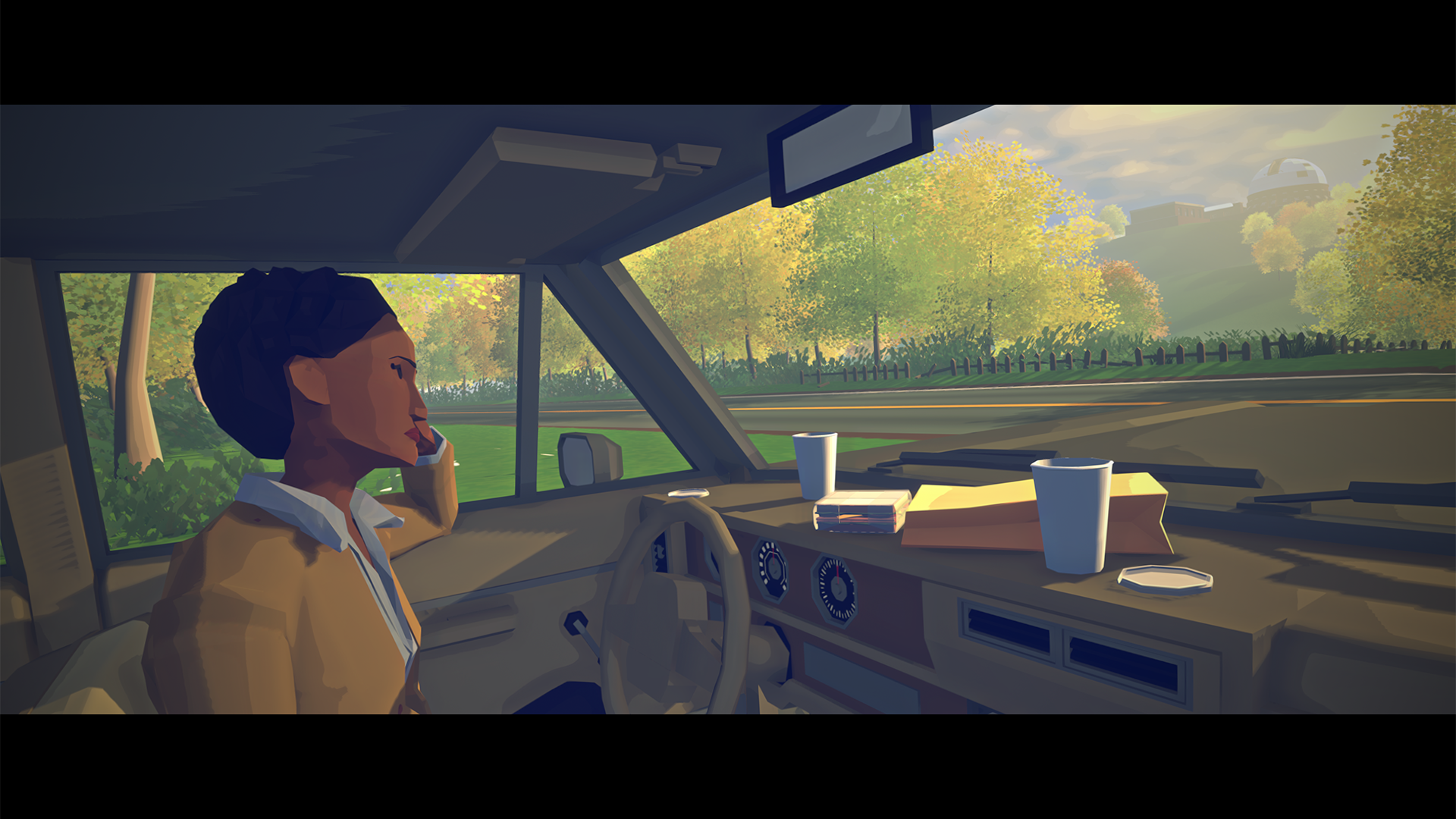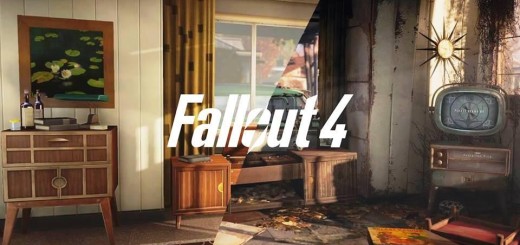VIRGINIA Review

If you were at all aware of VIRGINIA’s development, you’ve inevitably heard it compared to TWIN PEAKS and THE X-FILES. Playing as a young POC female FBI agent conducting a special internal investigation, you partner up with your suspect for a missing person’s case in Smalltown, USA — it’s the 90s and things get spooky. While the game does become inscrutable and strange, with its wordless storytelling and low poly art style accentuating the surreal atmosphere, the influence is mostly superficial. I wouldn’t say that it points to what VIRGINIA is actually about. Looking back at my description, what stands out isn’t the moody investigation or the suspicious town, but that “young POC female” part.
The game opens with you looking in the mirror. It’s common for first-person games to leave the face or voice of the main character empty in the name of immersion, hoping the player will fill it with their own identity. Often, that “blank” protagonist is a white male. VIRGINIA confronts you with specifics. Your first player move is a female-coded action: applying lipstick. As you progress with the investigation, notions of identity and empowerment pervade the story.

Maybe in the sequel, buddy
As a white male, the game put me in front of images I had to constantly recontextualize. Did that local try to scare me at the gas station because he’s a suspect, or because of my character’s skin color, gender, and/or job? With facial expression minimal and dialogue absent, physical aspects of identification become the operative way of gauging interactions. Similarly, characters have their personalities enfolded into their work — a priest is never seen without his collar, a mayor without his big VOTE button, a deputy director without his suit and cigarette. The tension, though, is whether you choose to interpret encounters in relation to your work or in relation to your body. It’s a special strain of paranoia for the genre, asking the player to consider the dread-laden atmosphere of the surreal procedural in context with the experience of being a black woman in America.
If VIRGINIA has any level of player interactivity, it’s in the act of interpretation. As a gameplay mechanic, it’s uniquely obscure and non-mechanical, which is also the biggest criticism to levy against the game overall. VIRGINIA wants to tell a cinematic story, so it applies cinematic techniques, namely in its editing and music. At first, getting tossed from scene to scene by “cuts” has an enjoyable disorientation to it, with an effective musical score keeping the player cued to the emotional tenor of the game across scenes. But this wears thin. Moreover, it goes completely against making the story “cinematic.”
To play VIRGINIA is to feel like a camera operator constantly missing the shot. When the game does decide to let you look and move, it’s without real choice or consequence. Your interactivity only breaks the flow of story, leading to awkward moments where you’re left standing on doorstep for a good minute because you didn’t realize you were supposed to pull out your badge, or the more likely scenario, where you’ve attuned yourself to the limitations of the game and find yourself mindlessly pushing for That One Thing without even taking in a scene. You can play it on autopilot, because the game isn’t effectively designed for a pilot at all.

Same
In a lot of ways, VIRGINIA suffers from the same problems as FIREWATCH. While its stylistic and tonal aspirations are cool, the mystery ultimately feels like a underdeveloped sidestory, and the surreal elements some kind of theft. Interpreting obscure images in the symbolic, generic, and the self is a fascinating idea to build a game around. But if you’re going to do it, you should do it in a way movies can’t. In VIRGINIA’s case, the game wants to speak to a particular type of experience, but squanders the experiential possibilities of its medium.
I do think there’s merit to using a lack of interactivity to express meaning, especially so in a story about people pushed to the outside of society. But if you divorce your game from the interactive, you craft every playthrough to be exactly the same. VIRGINIA is designed around display, not play. And Youtube is cheaper.
Verdict: Do Not Recommend
Reviewed on PlayStation 4, also available on Xbox One and PC



